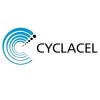
Trial of Haploidentical Stem Cell Transplantation for Haematological Cancers
Hodgkin's LymphomaNon-Hodgkin's Lymphoma7 moreThis trial investigates stem cell transplants from partially mismatched donors in patients with blood and bone marrow cancers. The trial will test two kinds of transplants - a full intensity transplant using a high dose of radiotherapy and chemotherapy, and a reduced intensity transplant with lower doses of chemotherapy and radiotherapy. Patients will be entered for the treatment pathway that is most appropriate for their level of health and fitness

Trial to Test the Effects of Adding 1 of 2 New Treatment Agents to Commonly Used Chemotherapy Combinations...
Acute Myeloid LeukaemiaMyelodysplastic SyndromeThe AML18 Trial will evaluate several relevant therapeutic questions in Acute Myeloid Leukaemia (AML), as defined by the WHO, and High Risk Myelodysplastic Syndrome. The trial is primarily designed for patients over 60 years considered fit for an intensive chemotherapeutic approach, but younger patients who may not be considered suitable for the concurrent NCRI AML Trial for younger patients may also enter. Patients for whom intensive chemotherapy is not thought suitable may enter the concurrent NCRI trial of less intensive therapy (LI1). Approximately 1600 patients will be recruited. At entry, a randomisation will compare a standard chemotherapy schedule DA (Daunorubicin/Ara-C) combined with 1 dose of Mylotarg (gemtuzumab ozogamicin, or GO) in course 1 against CPX-351. Patients who have known adverse risk cytogenetics (using Grimwade 2010 classification favourable/intermediate/adverse) at diagnosis may enter a Phase 2 evaluation of the combination of Vosaroxin plus Decitabine. Patients who achieve complete remission (CR) and who are MRD negative by flow cytometry after course one of DA will receive one further course of DA, with a randomisation to receive, either a course of DA or intermediate dose Cytarabine (IDAC) as a third course. Patients who are MRD negative by flow cytometry after course one of CPX-351 will receive up to 2 further course of CPX. Patients who fail to achieve a CR after course 1 of DA or who are MRD positive by flow cytometry or for whom MRD information is not available, are eligible to be randomised to compare DA with DA plus Cladribine (DAC) or FLAG-Ida for up to two courses of therapy. Patients who fail to achieve a CR after course 1 of CPX-351 or who are MRD positive by flow cytometry or for whom MRD information is not available are eligible to be randomised between a second course of standard dose CPX versus a repeat of the course 1 schedule. Patients receiving Vosaroxin and Decitabine are excluded from these post course 1 randomisations . Following the outcome of course 1, patients who received DA chemotherapy on course 1 will be randomised to receive further chemotherapy with the 2nd generation FLT3 inhibitor AC220. Patients randomised to AC220 will be allocated a maximum of 3 courses (short AC220) or 3 courses plus maintenance for 1 year (long AC220). Patients receiving Vosaroxin and Decitabine are excluded from this randomisation. Patients will be eligible for a non-intensive allogeneic stem cell transplant if a suitable HLA matched donor is available.

Early Response Assessment of Induction Chemotherapy in Acute Myeloid Leukemia Patients Using F-18...
Acute Myeloid LeukemiaThe purpose of this study is to investigate whether F-18 FLT PET/CT is useful in early response assessment of induction chemotherapy in acute myeloid leukemia patients.

De- Escalation and Stopping Treatment of Imatinib, Nilotinib or sprYcel in Chronic Myeloid Leukaemia...
Chronic Myeloid LeukaemiaThe purpose of this study is to investigate whether some patients with excellent responses to chronic myeloid leukaemia (CML) treatment are being overtreated, and can remain well on either a lower dose of treatment or without treatment at all. The dose of imatinib (Glivec), nilotinib (Tasigna) or dasatinib (Sprycel) treatment will initially be cut to half the standard dose for 12 months, and then treatment will be stopped completely for a further two years. The trial information will also help to develop a de-escalation and stopping strategy for future newly diagnosed CML patients in the next British national CML study (to be known as SPIRIT3).

Study of Sapacitabine in Acute Myeloid Leukemia (AML) or Myelodysplastic Syndromes (MDS)
Acute Myeloid LeukemiaMyelodysplastic SyndromesThis is a combination study to evaluate sapacitabine administered in alternating cycles with decitabine in previously untreated Acute Myeloid Leukemia (AML) or concomitantly with venetoclax in previously treated AML or MDS

FLAG+Ida With G-CSF Priming for Patients Younger Than 60 Years With Resistant AML
Acute Myeloid Leukemia- To determine the feasibility of fludarabine and cytarabine as continuous infusion plus idarubicin with granulocyte-colony stimulating factor priming for patients with resistant acute myeloid leukemia other than acute promyelocytic leukemia

Imatinib Versus Imatinib and Peg-Interferon in Patients With Ph+ CML and Complete Cytogenetic Response...
LeukemiaMyeloid1 moreThe study is controlled and randomized in Philadelphia-positive chronic myeloid leukemia (Ph+ CML) patients with complete cytogenetic response after more than one year of imatinib therapy. The aim is to explore a possible benefit in the addition of peg-interferon (Peg-IFN) to imatinib, in terms of the rate of achievement, molecular remission, and response duration.

Tacrolimus and MMF as Post Grafting Immunosuppression After Conditioning With Flu TBI for HLA Matched...
Multiple MyelomaLymphoma3 morePrimary Objective: A. To determine whether stable allogeneic hematopoietic engraftment can be safely established in patients receiving a non-myeloablative allogeneic SCT from a matched sibling donor, with fludarabine and low-dose TBI, with pre- and post-transplant immunosuppression with tacrolimus and MMF. B. To evaluate the incidence of grade II-IV GVHD associated with this treatment.

Nilotinib Versus Imatinib in Treatment of Patients With Newly Diagnosed Chronic Myeloid Leukemia...
Chronic Myeloid LeukemiaNilotinib vs imatinib in patients with newly diagnosed CML-CP

3 Anthracyclines, 2 Types of Consolidation With Different ARA-C Doses and Maintenance in Adult Acute...
Acute Myeloid LeukemiaThe goal: to evaluate the role of high dose ara-c plus idarubicin and mitoxantrone consolidation followed by maintenance in the setting of high total cumulative anthracyclines dose(720-660 mg/m2).
